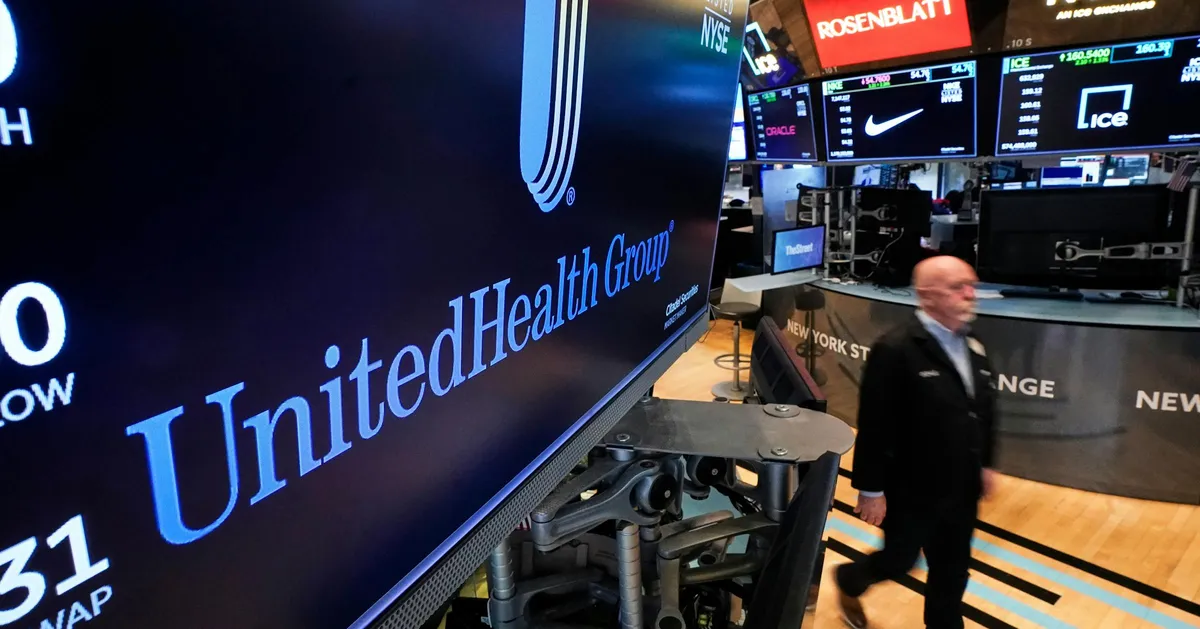
In recent days, social media has been abuzz with discussions surrounding the upcoming earnings announcement of UnitedHealth Group, a leading health insurance provider in the United States. Scheduled for Tuesday morning, this announcement has garnered unprecedented attention, particularly in Minnesota, where the company has historically outperformed its peers for the past 25 years. The anticipated decline in earnings is not just surprising; it is a stark reminder of the volatility that can affect even the most stable blue-chip stocks.
The current situation regarding UnitedHealth's stock is troubling. A significant decline in value is not typical for a company of this stature. Investors who understand market dynamics recognize that such a steep drop in a blue-chip stock can present a unique opportunity for recovery. As the largest health insurance provider in the nation, UnitedHealth has the potential to bounce back from the challenges currently impacting the health insurance sector.
These challenges include reduced government reimbursements in Medicare, escalating medical costs, and an increase in patient utilization rates as more people require medical care. If UnitedHealth can implement effective strategies to navigate these issues swiftly, its stock could rebound significantly. Conversely, the company might find itself in a “value trap,” where the stock appears undervalued based on traditional metrics yet fails to recover due to underlying non-financial factors.
One of the critical factors affecting UnitedHealth's future is the ongoing investigation by the Department of Justice. This uncertainty adds an unpredictable layer to the company’s operations and future profitability. Jared Holz, a healthcare equity strategist at Mizuho Securities, highlighted the current lack of visibility within the health insurance industry, which has resulted in challenges for analysts and investors trying to assess the situation accurately.
As we approach the earnings announcement, the focus shifts to how investors are positioning themselves. Are they betting on short-term gains, medium-term recovery, or long-term stability? Many investors and analysts are particularly interested in the forward-looking profit predictions that UnitedHealth executives will provide. Following a disappointing earnings report in April—where the company missed investor expectations for the first time since 2008—the stock price plummeted from $585 to approximately $280.
In a significant leadership change, CEO Andrew Witty was replaced by former CEO Stephen Hemsley, who is expected to address profit forecasts for the first time since his return. Analysts predict that UnitedHealth might project per-share profits between $18 and $20 for 2025. Falling below this range could lead to further decreases in stock value, while exceeding it could trigger a surge, potentially pushing shares back above $300, or even as high as $325, according to market speculators.
Despite the significant drop in stock price, UnitedHealth's shares remain relatively high compared to its competitors. The valuation is contingent upon how investors perceive the company’s future earnings and the multiples they are willing to apply to those earnings. Holz points out that at its current price, especially if the guidance falls below $18, UnitedHealth may not be considered inexpensive. Future earnings announcements will be critical in determining whether the issues affecting the health insurance sector are being resolved and if UnitedHealth can effectively manage its internal challenges.
As we look ahead, it is unlikely that UnitedHealth will project 2026 profits at the previously expected levels for 2025. This reality leads to skepticism among investors regarding the likelihood of the stock returning to $500 before 2027. Questions arise about whether the business model that has driven UnitedHealth’s growth over the last three decades is still viable. While long-term investors may still consider purchasing the stock, they would need to place their faith in the company's ability to implement significant changes successfully.
The comparison to iconic companies like Kodak and IBM, which faced similar challenges in the early 1990s, serves as a cautionary tale. The decline of such blue-chip stocks is rare but can present lucrative opportunities for those willing to bet on long-term recovery. As the market prepares for UnitedHealth's earnings announcement, all eyes will be on how the company navigates its current challenges and what the future holds for this health insurance giant.